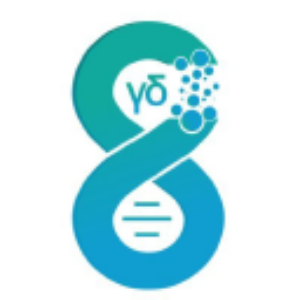IN8bio Presents Positive Phase 1 Data of INB-200 in Newly Diagnosed GBM Demonstrating Prolonged Progression-Free Survival
Rhea-AI Summary
Positive
- Median progression-free survival of 16.1 months, representing a 132.6% improvement over standard-of-care
- 40% of patients receiving repeated doses remain alive and progression-free for over two years
- Excellent safety profile with no serious toxicities, CRS, or ICANS observed
- Three patients were able to return to work, indicating quality of life improvements
- Promising preliminary Phase 2 trial data showing 10.8 months mPFS
Negative
- Limited patient sample size (n=13) in Phase 1 trial
- Single-dose treatment showed lower efficacy (8.3 months mPFS) compared to multiple doses
News Market Reaction
On the day this news was published, INAB declined 9.78%, reflecting a notable negative market reaction.
Data tracked by StockTitan Argus on the day of publication.
- Repeated doses of INB-200 demonstrate extended median progression-free survival (mPFS) of 16.1 months, more than double the expected 6.9 months typically observed with the standard-of-care (SOC) Stupp protocol
- INB-200 is well-tolerated, showing no serious toxicities beyond those typically observed with chemotherapy. Importantly no cytokine release syndrome (CRS), or immune effector cell-associated neurotoxicity syndrome (ICANS) was observed
- Median PFS in patients receiving multiple doses of INB-200 exceeds the historical median overall survival (mOS) of 14.6 months with the SOC Stupp protocol; notably, four patients remain alive and progression free for a median of over two years
Company to host conference call with principal investigator at 8:30am EDT today. Use this link to participate, or access the listen-only version of the webcast here
NEW YORK, June 02, 2025 (GLOBE NEWSWIRE) -- IN8bio, Inc. (Nasdaq: INAB), a clinical-stage biopharmaceutical company developing innovative gamma-delta (γδ) T cell therapies for cancer and autoimmune diseases, today announced new long-term clinical data from its fully enrolled Phase 1 trial of INB-200 in patients with newly diagnosed glioblastoma multiforme (GBM). The data were presented in an oral session on May 30th at the 2025 American Society of Clinical Oncology (ASCO) Annual Meeting.
“Half of the patients who received multiple doses remained progression free for greater than a year and a half, demonstrating functional recoveries, with several patients also having the ability to return to work. No new relapses have been reported since the last clinical update in October 2024” stated Burt Nabors, M.D., Division Director, Neuro-Oncology at the Heersink School of Medicine at the University of Alabama at Birmingham and Principal Investigator of the study. “These early data highlight the potential of repeated intracranial dosing of IN8bio’s gamma-delta T cells to extend mPFS in GBM, including in patients with chemotherapy-resistant tumors.”
The Phase 1 results of INB-200 demonstrate that repeated dosing of IN8bio’s proprietary Drug Resistant Immunotherapy (DRI) – which utilizes genetically modified gamma-delta T cells delivered directly into the brain – in combination with SOC maintenance chemotherapy (temozolomide), led to an mPFS of 16.1 months. This represents an improvement of more than double (+9.2 months or +
Importantly, no dose-limiting toxicities (DLTs), CRS, or ICANS have been observed among patients treated with INB-200 (n=13). The majority of adverse events were Grade 1-2 and consistent with those typically associated with radiation and temozolomide. No treatment-related deaths have occurred.
Highlights from the Clinical Data as of May 31, 2025:
INB-200
- Four patients (
40% ) who received repeated doses of INB-200 remain alive and progression free for a median of over two years, with three returning to work - No additional relapses were observed since the last data update on October 18, 2024
- Among patients who received multiple doses of INB-200, mPFS reached 16.1 months, compared to 6.9 months with SOC and 8.3 months for patients who received only a single dose of INB-200
- Repeat dosing demonstrated no additional safety risks, with most side effects being mild and attributable to the SOC therapy
50% of patients receiving repeated doses remained progression-free >18 months versus0% of patients who received a single dose
INB-400
- Data from our Phase 2 clinical trial of INB-400 in patients with newly diagnosed GBM, including three additional clinical sites, also show encouraging preliminary results: current mPFS is at 10.8 months. Additional updates expected late 2025
“Our goal is to achieve deeper responses and eliminate more cancer cells to ultimately extend the time patients can remain progression free and alive,” stated William Ho, CEO and cofounder of IN8bio. “The data presented at ASCO by Dr. Nabors speaks to the potential of IN8bio’s gamma-delta T cells to provide a game-changing immunotherapy for this dire and life-threatening cancer. We believe that INB-200 represents a novel direction in therapy for the treatment of solid tumor cancers like GBM. The complete data from our Phase 1 trial and supporting data from our Phase 2 trial represent the first time a gamma-delta T cell therapy has shown the potential to extend mPFS beyond historical benchmarks.”
IN8bio’s approach delivers gamma-delta T cells directly to the tumor cavity after surgery, applying sustained immune pressure to eliminate residual cancer cells. The Company’s DRI technology is designed to treat newly diagnosed GBM by harnessing the natural tumor-targeting power of gamma-delta T cells and the sensitizing effects of chemotherapy. This approach aims to eliminate the chemo-resistant cancer and stem cells that often survive SOC treatment and can lead to relapse.
Conference Call Details
IN8bio will host a conference call and webcast featuring Dr. Burt Nabors, the Principal Investigator, today, Monday, June 2, 2025 at 8:30 am EDT to review the updated clinical data from the ASCO presentation. The webcast can be accessed by clicking this link and can also be accessed on the Events & Presentations page of the Company’s website. To participate in the live call, please register using this link. It is recommended that participants register at least 15 minutes in advance of the call. Once registered, participants will be informed of the dial-in number and will be provided a unique PIN.
(1) Historical reported mPFS and mOS from Stupp Protocol (surgery, radiotherapy plus maintenance temozolomide); doi: 10.1056/NEJMoa043330
About IN8bio
IN8bio is a clinical-stage biopharmaceutical company developing γδ T cell-based immunotherapies for cancer and autoimmune diseases. Gamma-delta T cells are a specialized population of T cells that possess unique properties, including the ability to differentiate between healthy and diseased tissue. The company's lead program, INB-100, is focused on acute myeloid leukemia evaluating haplo-matched allogeneic γδ T cells given to patients following a hematopoietic stem cell transplant. The company is also evaluating autologous DeltEx DRI γδ T cells, in combination with standard of care, for glioblastoma in its INB-200 and 400 programs, and advancing novel γδ T cell engagers for potential oncology and autoimmune indications. For more information about IN8bio, visit www.IN8bio.com.
FORWARD LOOKING STATEMENTS
This press release may contain forward-looking statements made pursuant to the safe harbor provisions of the Private Securities Litigation Reform Act of 1995. These statements may be identified by words such as “aims,” “anticipates,” “believes,” “could,” “estimates,” “expects,” “forecasts,” “goal,” “intends,” “may,” “plans,” “possible,” “potential,” “seeks,” “will” and variations of these words or similar expressions that are intended to identify forward-looking statements, although not all forward-looking statements contain these words. Forward-looking statements in this press release include, but are not limited to, statements regarding: the ability of repeated intracranial dosing of INB-200 to extend mPFS and improve mOS in patients with GBM, including those with chemotherapy-resistant tumors; INB-200’s ability to continue to be well-tolerated and show no serious toxicities beyond those typically observed with chemotherapy; INB-200’s ability to improve patient outcomes and allow patients to return to work; INB-400’s ability to improve mPFS; the ability of IN8bio’s DRI technology to offer a new way to treat newly-diagnosed GBM; gamma-delta T cells’ ability to eliminate chemo-resistant cancer and stem cells that often survive SOC treatment; INB-200’s potential as a novel direction in therapy for the treatment of solid tumor cancers like GBM; INB-200’s ability to improve outcomes in ways that enhance effectiveness of treatments without adding toxicity; IN8bio’s ability to achieve anticipated milestones, including the advancement of clinical development plans and receipt of regulatory approvals; and other statements that are not historical fact. IN8bio may not actually achieve the plans, intentions or expectations disclosed in these forward-looking statements, and you should not place undue reliance on these forward-looking statements. Actual results or events could differ materially from the plans, intentions and expectations disclosed in these forward-looking statements as a result of various factors, including: risks to site initiation, clinical trial commencement, patient enrollment and follow-up, as well as IN8bio’s ability to meet anticipated deadlines and milestones; uncertainties inherent in the initiation and completion of preclinical studies and clinical trials and clinical development of IN8bio’s product candidates; the risk that IN8bio may be unable to raise additional capital and could be forced to delay, further reduce or to explore other strategic options for certain of its development programs, or even terminate its operations; IN8bio’s ability to continue to operate as a going concern; the risk that IN8bio may not realize the intended benefits of its γδ-TCE platform or DeltEx platform; the availability and timing of results from preclinical studies and clinical trials; whether the outcomes of preclinical studies will be predictive of clinical trial results; whether initial or interim results from a clinical trial will be predictive of the final results of the trial or the results of future trials; the risk that trials and studies may be delayed and may not have satisfactory outcomes; potential adverse effects arising from the testing or use of IN8bio’s product candidates; the uncertainty of regulatory approvals to conduct trials or to market products; IN8bio’s reliance on third parties, including licensors and clinical research organizations; and other important factors, any of which could cause our actual results to differ from those contained in the forward-looking statements, which are described in greater detail in the section entitled “Risk Factors” in IN8bio’s Quarterly Report on Form 10-Q filed with the Securities and Exchange Commission (SEC) on May 7, 2025, as well as in other filings IN8bio may make with the SEC in the future. Any forward-looking statements contained in this press release speak only as of the date hereof, and IN8bio expressly disclaims any obligation to update any forward-looking statements contained herein, whether because of any new information, future events, changed circumstances or otherwise, except as otherwise required by law.
Contacts:
IN8bio, Inc.
Patrick McCall
646.933.5603
pfmccall@IN8bio.com
KKH Advisors
Kimberly Ha
917.291.5744
kimberly.ha@kkhadvisors.com








